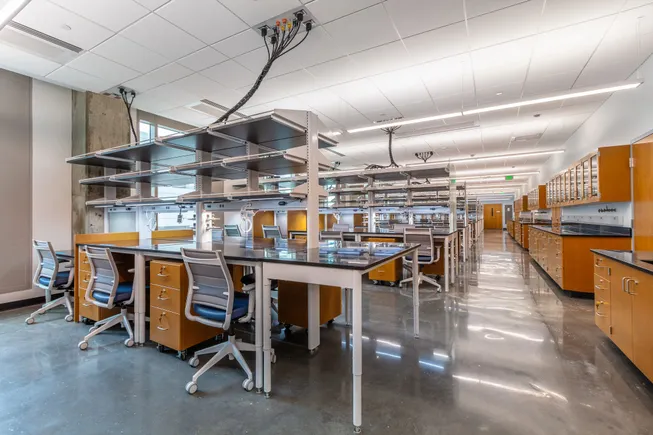It’s back-to-school season across the country, and Nick Proffitt, the higher education lead for Cincinnati-based Messer Construction, has new builds on his mind.

Nick Proffitt
Permission granted by Messer Construction
With major university projects underway in Tennessee and the Carolinas, Proffitt knows how to be a successful player in the higher education market while working to differentiate Messer from the competition.
Here, Proffitt talks with Construction Dive about how the company views higher education demand, his theory on why the sector is hot now and how to succeed as a builder in the space.
This interview has been edited for brevity and clarity.
CONSTRUCTION DIVE: How does Messer approach higher ed projects?
NICK PROFITT: A big thing with higher ed is the variety of projects that you’ll see. It could be a residence hall, dining hall, classroom building, laboratory research, medical center at a university, athletics, stadiums, training facilities. It really runs the gamut of all the different project types that we are best suited for.
It takes a lot of skillful planning to make sure that whatever we’re doing on the construction side does not interrupt anything they’re doing on research or education or campus life. That’s where we excel.
We need to understand what the use is going to be. We ask questions to understand why they’re doing this, so that maybe we can help offer better value. Because maybe the owners have described they want one thing, and the architects are reacting to that, and they design what they know how to design.
And then, if we ask a question and have a different understanding, we can say “Hey, if this is what you’re trying to accomplish, there might be a different way to bring that to life.”
How does Messer see demand in the market segment?
I can tell you that the higher education segment is very strong for us, and as a company, particularly in Nashville, there’s a lot of opportunities that we’re tracking.
So obviously, Vanderbilt is a strong player, as are Middle Tennessee State and Austin Peay State University. We do work at Western Kentucky University as well, and we run that work out of our Nashville office, just due to proximity there.
A lot of it’s a result of the fact that most higher education institutions went on a construction freeze during the COVID-19 pandemic, because they were trying to figure out, what do we do?
Probably more than any other market segment that we work in, that meant higher ed dried up the most during that time frame. And so I think we’ve just seen the pendulum swing back the other way, where some pent-up demand is now coming to fruition in terms of projects that are being planned or talked about.
How does Messer see itself in this market segment vs. its competition?
We’re competing against the big national builders. We’re a regional contractor, primarily Midwest and Southeast, but we have national-level experience and capabilities.
We’re rooted in the community. Our kids are going to these colleges, hopefully, so we want them to be successful.
We know what these universities and colleges mean, in terms of being an economic driver for the region. When we’re selecting new offices to go to, we always want to make sure there’s a good mix of market segments. And higher education is one of those, because we want them to have that economic engine there.
Correction: This story has been updated to note that Messer runs its work at Western Kentucky University out of its Nashville office.

